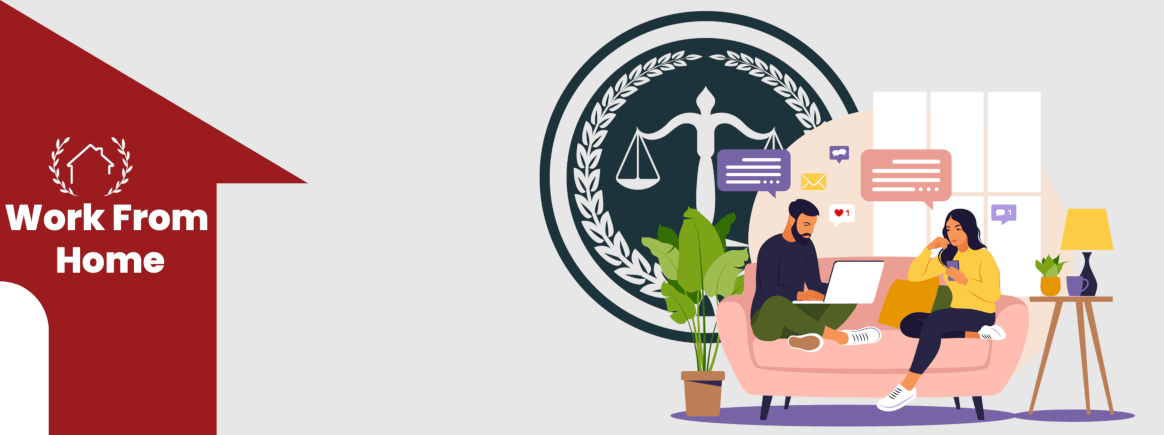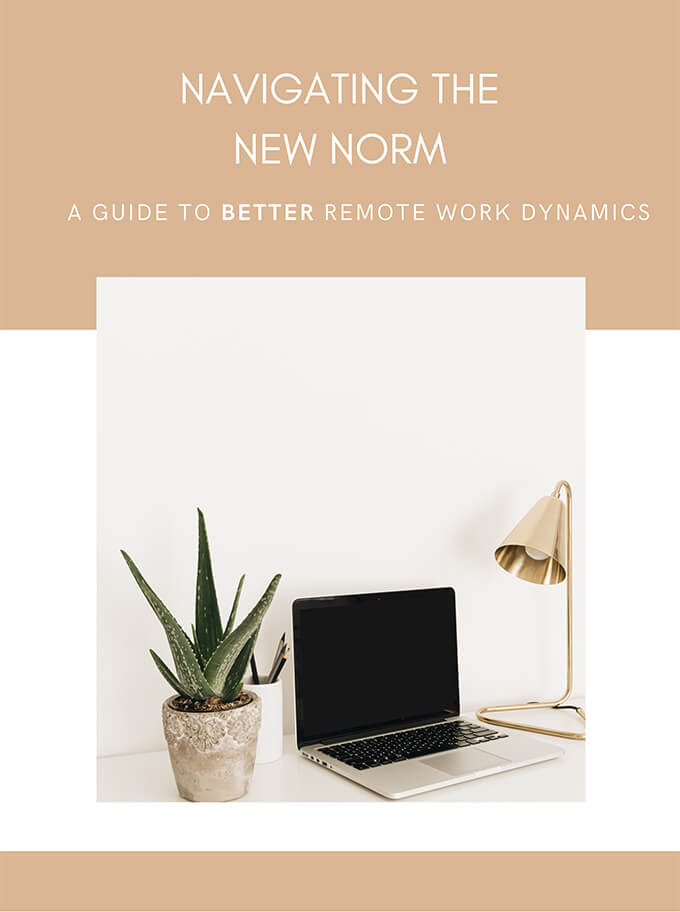
The Work from Home Controversy: Law Firms vs. Millennials and Gen Z
Remote work has been a topic of debate in the past year, as numerous employers have sought to reintegrate their employees into physical office spaces. Nevertheless, in the predominantly post-pandemic era, it is evident that the work culture has undergone a significant transformation. Many companies are facing the challenges of implementing remote and hybrid work arrangements. The discussion around remote work has intensified with the increasing presence of Millennials in the workforce and the arrival of Gen Z.
As the younger generation advocates for increased remote work options, there is also a strong push from executives for a return to traditional 40-hour work weeks. Broadly speaking, senior partners set the tone when it comes to observing established traditions, while younger associates drive technological innovation and desire greater flexibility in work arrangements. The influence of Millennials and Gen Z on the evolving landscape of law firms is undeniable, sparking a crucial debate on their preference for remote work. This blog will explore the controversial perspectives surrounding the demands of these younger lawyers for remote work and how law firms are navigating this challenging issue, considering the distinct advantages and disadvantages of both models.
The Demands of Millennial and Gen Z
During the pandemic many employees were able to work from the comfort of their own home. Which has then sparked the interest in working remotely not just during but after the pandemic. Both Millennials and Gen Z are finding that remote work models are much more appealing to traditional ones. In a poll, done by the Angus Reid Institute, states that almost 100% want to continue working from home. This has sparked conversations as to why the new generation has been so strongly advocating for this new change when people have been commuting to the office for decades. It boils down to three main reasons:
-
Technological Proficiency
Here's some history: home computers gained popularity in the 1980s, followed by the internet's rise in 1995 and the invention of Google in 1998.
Meaning Millennials and Gen Z are unique in that they've matured in the digital era, being the very first generation raised entirely in the age of technology. They've witnessed the birth of the iPhone, held tablets since childhood, and had lifelong access to the internet, making it an integral part of their lives. This has created an innate familiarity with both digital tools and platforms which make them early adopters of innovative solutions that can enhance efficiency and productivity in the workplace. Their tech-savviness, however, extends beyond just using tools; they often possess the ability to swiftly adapt to new software and applications making them valuable assets in any workplace that utilizes ever-changing technology. They embrace convenient, flexible and fast modes of communication which are much more intune with the way they live and work. Why call when you can text? Why hold a meeting when you can send an email? Why fax when you can scan? These generations prioritize the concepts of convenience and flexibility, which are distinctly evident even when it comes to their working models.
-
Work-Life Balance
The younger generations place a high importance on the concept of work-life balance and actively seek opportunities that allow for a more flexible and holistic approach to their professional lives. Their priorities extend beyond the confines of a traditional 9-to-5 work structure, and they are keenly interested in achieving balance between their careers and personal lives. By actively pursuing this balance, they aim to safeguard their overall well-being and address the diverse needs of family and personal responsibilities, while still fulfilling their professional obligations. This commitment to holistic well-being not only speaks to their individual aspirations, but also reflects a broader societal shift toward redefining what success means in the modern workforce. As such, they are challenging conventional workplace norms and encouraging a more empathetic and flexible approach to work that is increasingly valued in today's evolving professional landscape. -
Cost and Productivity
Millennials and Gen Z both have a strong desire for the option to work remotely, and they firmly believe that doing so can significantly improve their overall well-being and lifestyle. This flexibility eliminates the need for daily commutes, which saves time while reducing the associated stress and expenses. With rising inflation prices, the new generations of legal professionals are trying to find more ways to save time and money. Moreover, they view remote work as a catalyst for increased productivity, as it enables them to curate a work environment best suited to their needs and preferences. This generation views remote work as a means to adapt to the fast-paced modern world, reclaim their time, and boost both their well-being and professional efficiency.
Remote work continues to captivate Millennials and Gen Z, offering them unprecedented control over their work lives, a concept they highly value. They are technologically proficient, value a good work-life balance and see remote work as a cost-effective solution. Their desire for flexibility reflects a broader shift towards a more empathetic and holistic approach to work. However, this flexibility challenges conventional work norms. Ideas, cultures and even physical aspects of work cannot be replicated in a remote environment and therefore, some things are lost. This is now resulting in a rift between the newer workforce filling out the space and the more experienced working generations.
The Controversy: Law Firms vs. Millennial and Gen Z Demands
As of 2023, Millennials make up 39% of the workforce while Gen Z is to have projected 30% incoming in the coming years. As more of the newer generation fill out the workforce, their unique talents and insights may cause a rift in more conservative working environments. The new generation is much more flexible, and adaptable to change where law firms, on the other hand, can be resistant to change and stringent with their tried and true methods. After all, if all your methods leading up to this point have given you success, why is there a need to change? Here are 3 points of contention:
-
Client Relationships
In a remote or hybrid work environment, how would you build and retain good relationships with new or ongoing clients? Historically, face to face interactions have been vital to building trust and retaining clients. It's difficult to read and even see the nuances in conversation over messages, emails or even video calls. Body language and personal connections are formed during in-person meets and are believed to play an irreplaceable role in fostering trust — which is paramount to any lawyer-client relationship. With a work-from-home or even hybrid work model, it would be difficult to create these relationships or keep them afloat. -
Work Ethic
This particular aspect of remote work has sparked numerous debates between young legal professionals and their more senior counterparts. Critics of the remote work models claim that because there is a lack of direct supervision, it will result in a lack of productivity and accountability among younger legal professionals. The traditional office setup, characterized by constant physical oversight and immediate access to supervisors and mentors, has been a cornerstone of ensuring that legal professionals meet their obligations with diligence and dedication.
Throughout the pandemic, numerous managers and executives employed a range of software tools to monitor their employees' work performance, even going so far as to track mouse movements and utilize webcams. Naturally, this raised concerns about trust in the workplace and potential breaches of privacy for the professionals being observed. While many firms may believe that working remotely can cause a drop in productivity, studies have shown quite the opposite. Owl Labs in collaboration with Global Workplace Analytics have noted that 83% say they are at the same productivity level — or higher — working from home compared to the office. The debate, however, continues on as many young legal professionals push for more flexible work environments while still promising productivity stays high.
-
Training and Mentorship
Traditional mentorship and training programs have historically thrived on in-person interactions, enabling the direct transfer of institutional knowledge and fostering hands-on learning experiences. The mentor-mentee relationships formed through face-to-face guidance have not only contributed to the professional growth of younger lawyers but also played a vital role in preserving the ethical and cultural values within law firms.
However, the adoption of remote work models has prompted a reconsideration of these practices. This challenge has prompted a reevaluation of how best to adapt training and mentorship programs to the virtual landscape, seeking innovative solutions that harness technology to ensure that the invaluable institutional knowledge continues to be passed down to the next generation of legal professionals. The transformation in the legal industry's approach to mentorship and training, guided by the fusion of traditional wisdom with technological solutions, is emblematic of the broader evolution occurring in the contemporary professional landscape.
Adapting to the Changing Legal Landscape
So, what's the way forward? If law firms opt for a rigid return-to-office approach, they risk missing out on the promising talents of emerging legal professionals who prioritize flexibility in their careers. On the other hand, aligning entirely with the preferences and wants of the Millennials and Gen Z may entail compromises in operations that have historically taken place in-office. Client relationships may suffer or even mentorship challenges may arise with a heavy focus on remote work.
Ultimately, the legal industry must adapt to remain competitive and relevant, leveraging the potential of millennial and Gen Z attorneys while preserving the integrity and professionalism that the profession demands. As remote work becomes a more significant part of the legal landscape, the industry's ability to find common ground and meet the evolving expectations of its workforce will shape its future.
You may also like
Happy Holidays Message from David Swadden, CEO
December 18, 2025
We would like to wish all our clients and readers a wonderful holiday season filled with joy and laughter.
Tracument Holiday Schedule
December 11, 2025
We would like to update all our clients of our Holiday Schedule this holiday season!
Tracument Wrapped!
December 4, 2025
What 2025 Looked like for Tracument and for you!




